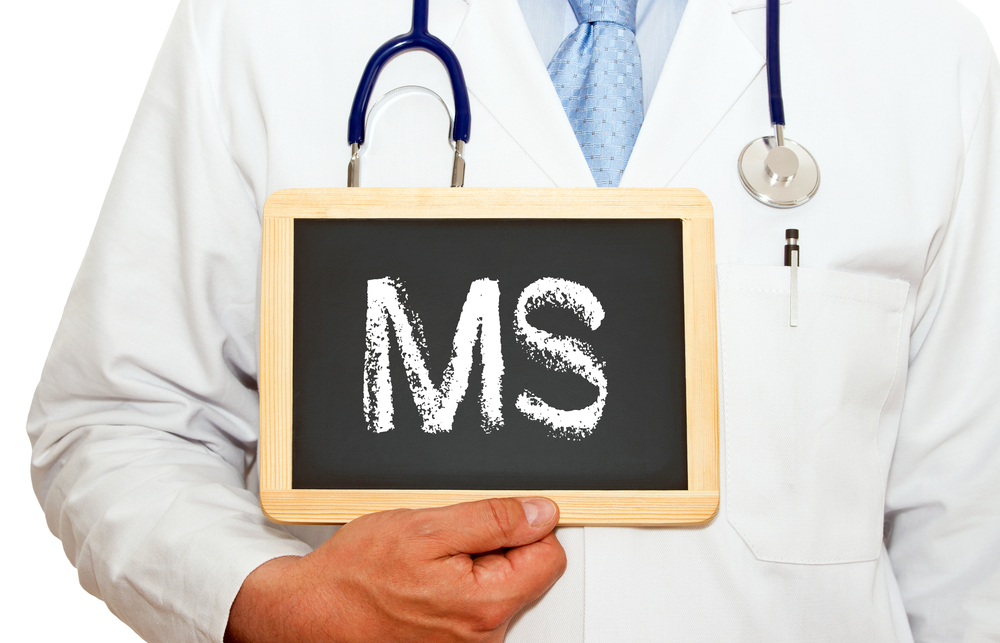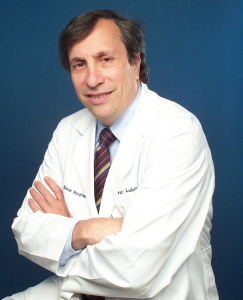#CMSC16 – An Interview with Dr. Fred Lublin of the Center for Multiple Sclerosis at Mount Sinai
Written by |

Dr. Fred Lublin, a neuroimmunologist with a specialty in experimental therapies, will open this year’s annual meeting of the Consortium of Multiple Sclerosis Centers on June 1 with an address questioning the continuing importance of relapses in multiple sclerosis (MS).
But the question raised by the title of the John F. Kurtzke Memorial Lecture he will deliver — “Do Relapses Really Matter?” — is decidedly superficial. In a telephone interview with Multiple Sclerosis News Today, Dr. Lublin was clear that relapses matter a great deal.

Dr. Fred Lublin
“Even though we have come a long way in treating relapsing forms of MS, we haven’t stopped all relapses,” Dr. Lublin said. “Relapses have important implications medically, socially, emotionally, and financially.”
And, he added, “relapses interact with how we view progressive [forms of the] disease as well.”
Their clinical manifestations, he has said elsewhere, are likely just “the tip of the iceberg” that is MS.
Dr. Lublin knows the subject well. The director of the Corinne Goldsmith Dickinson Center for Multiple Sclerosis at Mount Sinai Hospital in New York, he is also the Saunders Family Professor of Neurology at the hospital’s Icahn School of Medicine. He has served the National Multiple Sclerosis Society as chair of its advisory committee on clinical trials of new MS drugs, and is the current chair for that committee with the Society’s New York City Chapter. Dr. Lublin, the author of numerous published scientific articles, has also served as a consultant to the National Institutes of Health (NIH) and to pharmaceutical and biotech companies involved in MS drug development, and is a member of the MS Society’s National Board of Directors.
He is a co-editor of the Multiple Sclerosis and Related Disorders journal, and was a member of the panel that redefined the diagnostic criteria for MS.
“How relapses influence disease worsening and clinical outcomes in MS over the long term continues to be debated and accurate ways to determine what constitutes a relapse in MS and the severity of relapses have been lacking,” he said in a press release given to Multiple Sclerosis News Today by the CMSC. “My opening lecture … will provide insight on how, with emerging efficacy data, MS care professionals can begin to re-evaluate what is an ‘acceptable’ relapse rate.”
MS treatment has advanced greatly since 1993, when interferon beta-1b, which Dr. Lublin was instrumental in investigating, was first approved by the U.S. Food and Drug Administration (FDA) as a treatment for relapsing forms of the disease.
“We have gone from one therapy to 13 approved therapies, with several different molecular mechanisms,” he said in the interview. “We have our choice of injectable, infusions, and pills, and so we can better tailor the treatment to the patient’s needs.”
But challenges remain, he said, the greatest among them being the lack of treatments for those with progressive MS.
It is fitting that Dr. Lublin, long involved in both basic science and clinical research — leading studies from interferon to a large and NIH-funded early trial of a combination of MS drugs — was chosen to deliver the Kurtzke Memorial lecture.
Dr. Kurtzke, who died on Dec. 1, 2015, was a giant among MS researchers in the United States. He began in the field as chief of neurology at the Veterans Affairs Medical Center in Coatesville, Pennsylvania, and went on be a neurology professor at Georgetown University. He was a pioneer in the field of neuroepidemiology — a branch of epidemiology, a science considered a cornerstone of public health — and he was the creator of the Expanded Disability Status Scale (EDSS), a method of quantifying disability in MS that is still in wide clinical use today.
In marking his death, June Halper, the executive director of the CMSC, said that Kurtzke “was more than a scientist. He was a very kind and gentle man … a real gentleman in an era when that quality is rare. He was a mentor and an inspiration to young clinicians and researchers … [whose] work will live on for decades to come.”
The CMSC annual meeting, which runs from June 1-4 in National Harbor, Maryland, is “an opportunity for us to review the latest advances in the field with our colleagues, and to critically review the emerging science,” Dr. Lublin said. The event also marks the consortium’s 30th year of educational and scientific service to MS patients and the field’s healthcare community.
Multiple Sclerosis News Today will attend the meeting, offering its readers onsite coverage of events, from news to feature articles and interviews, with continuous social media coverage on Facebook, Twitter, and Pinterest. Social media accounts for Multiple Sclerosis News Today can be found in the upper righthand corner of its homepage.


